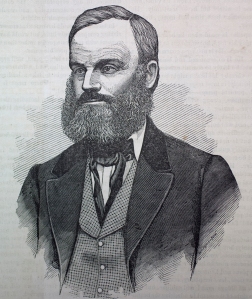hanging on to god, by an invisible wire
He might be dead now. Once a week, I get a letter from his social worker about a medical appointment that he needs to be reminded about. I do nothing with them. They just pile up on my desk and remind me that I don’t know where he is or how to reach him. The last time I heard from him was a month ago. His cell phone is disconnected. He has not been on the corner of Shattuck and College Avenue, selling newspapers for people’s spare change. The last time we spoke was over lunch at a restaurant in downtown Berkeley. “I can’t go back to the streets this time,” he told me. “I won’t do it.” The following thing he said only with his eyes: If I lose my apartment, I will kill himself.
His name is Oliver Hugh but he goes by Big Man. I had just left a Pentecostal concert in San Francisco the night we met. Had I not been so troubled by what I saw after the concert, we might never have. Instead of walking home from BART, I made my way to the nearest bar. The residual power of the Holy Spirit was simply not enough for me that night. I needed gin. After the concert, I observed hundreds of Pentecostals unnoticingly pass a homeless man begging for spare change. Wasn’t the point of being filled with the Holy Spirit to love other people? Isn’t that what we meant when we sung about bringing heaven to earth? Once the crowd cleared, I asked the homeless man if he is treated better after Christian concerts. “Oh man,” he said, intuiting my real question, “I gave up on Christians a long time ago.” Gin.
Big Man and his friend were sitting on the sidewalk next to a trashcan a block away from the bar. “Can I interest you in buying a Street Spirit tonight?” he asked me. It was 12:30 in the morning and the bar was going to close soon. “I don’t have any cash,” I said, trying to hurry away. “Sorry,” I said dryly. “How about you sit down and have a conversation with us instead,” Big Man said. “That’s better than money, anyway.” Somewhat begrudgingly, and not without pangs of hypocrisy, I sat down.
Big Man is indeed a big man. He is a fifty-something African American with a shaved head. He weighs around 450 pounds. The streets have written their stories on his body: it is large and rough and tired and scared but, somehow, still soft and beautiful. His hands and arms are covered with scabs. The last time I saw him, just after lunch, he told me that he needed to go to the hospital. Big Man is in and out of the hospital; that did not surprise me. It is as though he has a new illness every time I see him. What did surprise me was his concern that he might go into the hospital and never come out. “I can’t even smoke now,” he told me between breaths, coughing. “You know how bad I gotta be not to smoke.” I did.
Big Man grew up in the projects of West Oakland. As a teenager, he joined a gang notorious for, in his words, “taking people out.” I don’t know the whole story, but I do know that his involvement with them landed him in a federal prison for over ten years. Once he got out of prison, his father, a former black panther, supposedly disowned him. “Said he never wanted to see my face again,” Big Man told me. I knew he left something out of the narrative, but I let it be. Left without a family or the financial means to secure a home, Big Man had nowhere to go but the streets. In order to cope, he became an addict. His poisons are alcohol and heroine. He has been on and off the streets ever since.
You might not know it, talking to him. His laugh is boisterous and his personality is magnetic. He smiles, beautifully. Big Man is deeply depressed, though. I often count the number of people that pass him while he is selling newspapers. Most people treat him like he is invisible. Some look at him like he is polluting their air. Subjective consciousness is constituted through social interaction. What would it be like to internalize invisibility and repulsion, I wonder? Big Man has no family. He has only a few friends. He suffers from immense guilt as a result of his position in society and because of his addictions. I once asked him what keeps him alive amid such dire circumstances. He told him that it is his cell phone. When I laughed, he corrected me. It could be weeks before someone found him dead in his apartment, I think. He is hanging on to life by an invisible wire, I think.
Big Man believes in God, and he claims to have a personal relationship with him. He told me that he talks to God “all the time” and that, on occasion, he hears God talk back to him. Lately, he said, God has been telling him to stop using dope. That is part of the reason he has been experiencing challenge in his life, he told me: because God is trying to teach him a lesson.
This prompts an interesting puzzle (and a worthy empirical question): how can someone like Big Man hold on to an idea of a personally loving God? What makes this tenable? In a secular age such as ours, in which faith is no longer axiomatic, he has good reason to reject the idea. So I asked him. In response, he told me a story. He said that, just recently, he was on the verge of “taking himself out the game” because he did not have enough money to pay his rent. “I was going to smoke a little dope, get my dick sucked, and then go to sleep and never wake up again,” he said. Shortly before he prepared his overdose, however, he got a call from a friend. His friend told him that he would deposit enough money in his bank account for him to pay his rent. “At that moment,” he said, “God made me a believer again.”
God has many functions in our culture. For many, He is a weapon used to win a political argument and reaffirm a subcultural identity. People are concerned that secular culture is killing God or that God needs to be more like Bernie Sanders. And so they post things on Facebook. All the while, in another universe, some three miles from their computer screens, people like Big Man are looking for God to show up in the form of human benevolence, just to keep breathing. Still, Big Man is convinced that he’s the one in sin.


